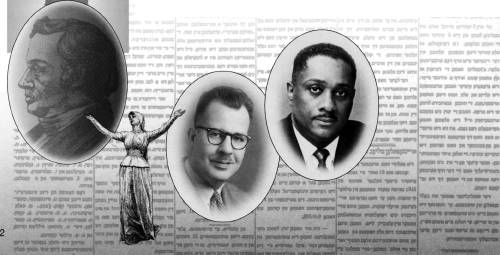 |
Home | Search | Browse | About IPO | Staff | Links |
 |
Home | Search | Browse | About IPO | Staff | Links |
Illinois Regional History Fairs DeKalb, Northern Illinois UniversityCarbondale, Southern Illinois University Charleston, Eastern Illinois UniversityPeoria, Bradley University The Illinois History Expo is an annual statewide competition that gives junior high and high school students (grades 6-12) an opportunity to display their knowledge on a topic through various history-related projects pertaining to Illinois in regions 1-4, on the map above. The Chicago History Education Center administers Region 5 on the map above. Illinois Regional History Fairs are held in the early spring at college campuses throughout Illinois. Projects and papers judged to be superior advance to the statewide Illinois History Fair held in Springfield during May. Some projects will be selected to represent Illinois at the University of Maryland in mid-June during the National History Day competition. Students are invited to enter projects in any of these categories: research papers, exhibits, media, and performances. For additional information, call the Illinois Historic Preservation Agency 1 
Volume 14:1—Communications in Illinois History This issue brings together four articles plus curriculum materials dealing with the history of Illinois media. You already know that Illinois has been a major player in the nation's media history. Certainly Chicago has hosted important media companies, like today's Tribune Company, or, early in the 1910s, Charlie Chaplin's Essanay Studio. You will also be aware that the media have played an important role in Illinois' politics, economy, and culture.We have selected these particular articles to also make two other points. First, all four deal with non-mainstream media. Jerry Landay's history of the Allerton Conferences recovers an important step in the path toward a non-commercial broadcast system-a path that has not yet led where its trailblazers hoped. William Berry's account of Johnson Publishing describes the nation's most prominent African-American media company. Jon Bekken's narrative of working-class newspapers and magazines shows them offering alternatives to more commercial and less participatory media. My own article about the death of antislavery editor Elijah Lovejoy deals with the conflict between mainstream politics and non-mainstream ideals. These articles are not intended to show the victimization of the little guys at the hands of the big media. On the contrary: each story shows people succeeding at the margins. One lesson of this history is that it was the margins which made the media. Everyone already knows this about American popular music, which has always drawn its energy from outsiders. It is also true of United States This leads to the second point of these essays, the ability of ordinary people to direct the course of media development. In each account, the innovators are people who come from outside the mainstream media—immigrants, workers, evangelicals, academics, insurance salesmen—who seize on opportunities that communities or technologies or markets offer. These histories teach the lesson that ordinary people can and do make media. This runs counter to common sense, which sees the media as immense and powerful bureaucracies, answerable only to the largest social and political forces. The mass media by their very nature seem to teach us that they are forces beyond individual control, unless by moguls like William Randolph Hearst or Ted Turner. But the history of the media teaches us different things and allows us to see the present situation of the media in a different light. Today, young people have tools to make their own media, and millions do. Some of them will follow the path of John Johnson, the founder of Johnson Publishing, or of Elijah Lovejoy. They should know that others have walked this path John Nerone Guest Editor, Illinois History Teacher 
2 |
|
|